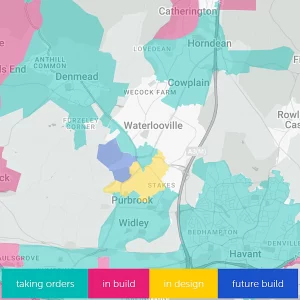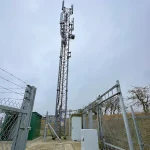Sponsored Links
Have Your Say on the New P2P File-Sharing Rules
Posted: 29th Jul, 2008 By: MarkJ
Last week saw six of the UK's largest ISPs sign-up to a new Memorandum of Understanding with the government and creative industry (original news). The move was the first step in developing a plan designed to tackle illegal music and movie downloads, which would begin with warning letters being issued to those identified as having committed such an act.
Happily the governments department for Business, Enterprise and Regulatory Reform (BERR) has opened a public consultation on the matter (here), giving everybody from ISPs to consumers the chance to have their say on how such abuse might be addressed:
Naturally there are all sorts of situations where illegal downloading can occur but may be difficult, if not absolutely impossible, to completely prevent. For example, an individual downloading an illegal music track over a shared network (work, home or Internet Cafe etc.) would see the owner of that network taking the blame and not those responsible for the act itself.
Meanwhile, people opening up their broadband connections via BT Fon's shared Wi-Fi initiative have every reason to be concerned. Some more remote regions of the UK, where land-line broadband has yet to reach, often rely upon a shared community network. Its disturbing to think that connectivity for an entire area could potentially be disrupted by the act of a single individual. Source: Thinkbroadband .
Happily the governments department for Business, Enterprise and Regulatory Reform (BERR) has opened a public consultation on the matter (here), giving everybody from ISPs to consumers the chance to have their say on how such abuse might be addressed:
Consultation on legislative options to address illicit P2P file-sharing
Starting Date: 24-07-08
Closing Date: 30-10-08
This consultation is intended to set out and gather views on a proposal for a co-regulatory approach that could be adopted in order to facilitate and ensure co-operation between Internet Service Providers (ISPs) and rights holders to address the problem of illicit use of Peer-to-Peer (P2P) file-sharing technology to exchange unlawful copies of copyright material.
This takes forward Recommendation 39 of the Gowers Review of Intellectual Property which addressed the issue of illicit use of P2P. The consultation also identifies and seeks views on other potential options and calls for evidence on issues related to illicit use of P2P.
Consultation Documents
Consultation on legislative options to address illicit peer-to-peer (P2P) file-sharing (PDF 499KB)
Starting Date: 24-07-08
Closing Date: 30-10-08
This consultation is intended to set out and gather views on a proposal for a co-regulatory approach that could be adopted in order to facilitate and ensure co-operation between Internet Service Providers (ISPs) and rights holders to address the problem of illicit use of Peer-to-Peer (P2P) file-sharing technology to exchange unlawful copies of copyright material.
This takes forward Recommendation 39 of the Gowers Review of Intellectual Property which addressed the issue of illicit use of P2P. The consultation also identifies and seeks views on other potential options and calls for evidence on issues related to illicit use of P2P.
Consultation Documents
Consultation on legislative options to address illicit peer-to-peer (P2P) file-sharing (PDF 499KB)
Naturally there are all sorts of situations where illegal downloading can occur but may be difficult, if not absolutely impossible, to completely prevent. For example, an individual downloading an illegal music track over a shared network (work, home or Internet Cafe etc.) would see the owner of that network taking the blame and not those responsible for the act itself.
Meanwhile, people opening up their broadband connections via BT Fon's shared Wi-Fi initiative have every reason to be concerned. Some more remote regions of the UK, where land-line broadband has yet to reach, often rely upon a shared community network. Its disturbing to think that connectivity for an entire area could potentially be disrupted by the act of a single individual. Source: Thinkbroadband .
Search ISP News
Search ISP Listings
Search ISP Reviews
Latest UK ISP News








Cheap BIG ISPs for 100Mbps+
150,000+ Customers | View More ISPs
Cheapest ISPs for 100Mbps+
Modest Availability | View More ISPs
Latest UK ISP News
Helpful ISP Guides and Tips
Sponsored Links
The Top 15 Category Tags
- FTTP (6798)
- BT (3881)
- Politics (3074)
- Business (2766)
- Openreach (2663)
- Building Digital UK (2512)
- Mobile Broadband (2475)
- FTTC (2142)
- Statistics (2127)
- 4G (2092)
- Virgin Media (2024)
- Ofcom Regulation (1779)
- 5G (1732)
- Fibre Optic (1604)
- Wireless Internet (1595)
Sponsored
Copyright © 1999 to Present - ISPreview.co.uk - All Rights Reserved - Terms , Privacy and Cookie Policy , Links , Website Rules































